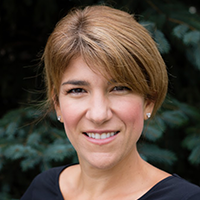Past Coverage of ACR 2016Past Coverage of ACR 2016 Return To RheumReports Home
In this first part of a series on The Basis of Targeted Therapy, Dr. Troy R Torgerson focused on immunology. He simplified the immune system by dividing it into 4 components of the host defense system.
Innate Immunity
1. Complement – the land mines
2. Phagocytes – the marines (neutrophils, macrophages)
Adaptive Immunity
3. B Cells – the air force that makes and deploys cruise missiles
4. T Cells – the generals, the assassins, and the psychologists
Key Messages
Below are some key messages I took away from this boot camp on the immune system.
1. Complement – the land mines
The complement system can be activated in 3 ways:
-
Classical pathway – immune complexes
-
Lectin pathway – pathogen oligosaccharides
-
Alternative pathway – pathogen surfaces
All three pathways converge on C3. Factor H, iCP and Factor I all work on C3 so that it cannot activate the membrane attack complex (MAC). This is important since MAC forms transmembrane channels that disrupt the cell membrane of target cells leading to cell lysis and death.
Early classical pathway defects are associated with invasive infections (e.g. Strep pneumonia), or lupus / lupus-like glomerulonephritis. Late pathway defects are associated with invasive infections (e.g. Neisseria organisms), hereditary angioedema, familial hemolytic uremic syndrome, and age-related macular degeneration.
In order to test for complement you need to look at numbers (C3, C4) and function (e.g. CH50, the amount of complement that causes lysis of 50% of antibody-coated RBCs).
Treatment options for complement deficiency include:
-
Giving fresh frozen plasma (FFP) to replace complement
-
Treatment of hereditary angioedema – C1-INH
-
MAC inhibitors like eculizumamb that bind to C5
2. Phagocytes – the marines (neutrophils and macrophages)
Phagocytes are cells that protect the body by ingesting (phagocytosing) harmful foreign particles, bacteria, and dead or dying cells. Their name comes from the Greek word phagein, "to eat" or "devour," and "-cyte," the suffix in biology denoting "cell," from the Greek kutos, "hollow vessel." Phagocytes are essential for fighting infections and for subsequent immunity.
When phagocytes don't function properly, the result can be recurrent infections, abscesses, poor wound healing, delayed separation of the umbilical cord, and chronic gingivitis and periodontal disease.
Treatments targeted at neutrophils include colchicine and steroids.
3. B Cells – the air force that makes and deploys cruise missiles
Chronic depletion of B cells can cause recurrent bacterial sinopulmonary infections, chronic or recurrent gastroenteritis, chronic enteroviral meningoencephalitis, arthritis, and unexplained bronchiectasis. We commonly see these types of infections in our rheumatologic patients when we deplete their B cells.
Treatments for B cell depletion include IgG replacement, plasmapheresis/IVIG, and medications such as belimumab, tabalumab, atacicept, and bortezomib.
4. T cells – the generals, assassins, and psychologists
-
CD4 helper T cells direct immune responses (the generals)
-
CD8 cytotoxic T cells kill cells infected with intracellular pathogens like viruses, fungi, etc (the assassins)
-
Regulatory T cells control and modulate immune responses (the psychologists)
Without generals, you end up with recurrent bacterial infections. Without assassins, you can get severe viral infections. And without psychologists, you end up with autoimmunity. Treatment for T cell inhibition is probably one that we are most familiar in both cancer and rheumatology. Some T cell inhibitors include: JAK-3 inhibitors, NSAIDs, TNF inhibitors, and IL-1.
Share This Report
About the Author

Marlene Thompson is an Associate Clinical Professor in Physical Therapy at Western University and an Advanced Physiotherapy Practitioner in Arthritis Care. MarleneÔǦs research interests include models of care, triage, advanced practice roles, and arthritis education.
View Full Bio






